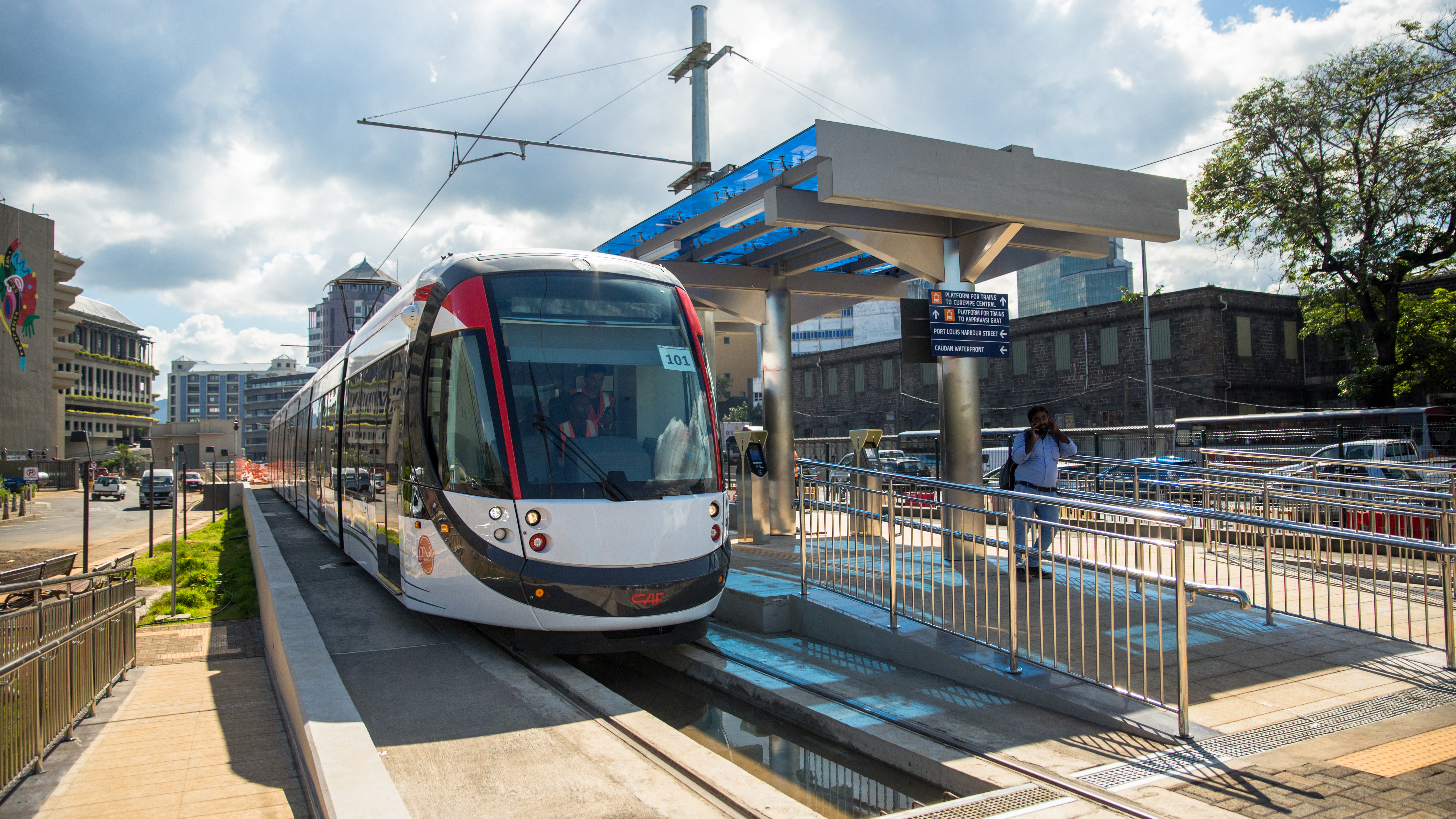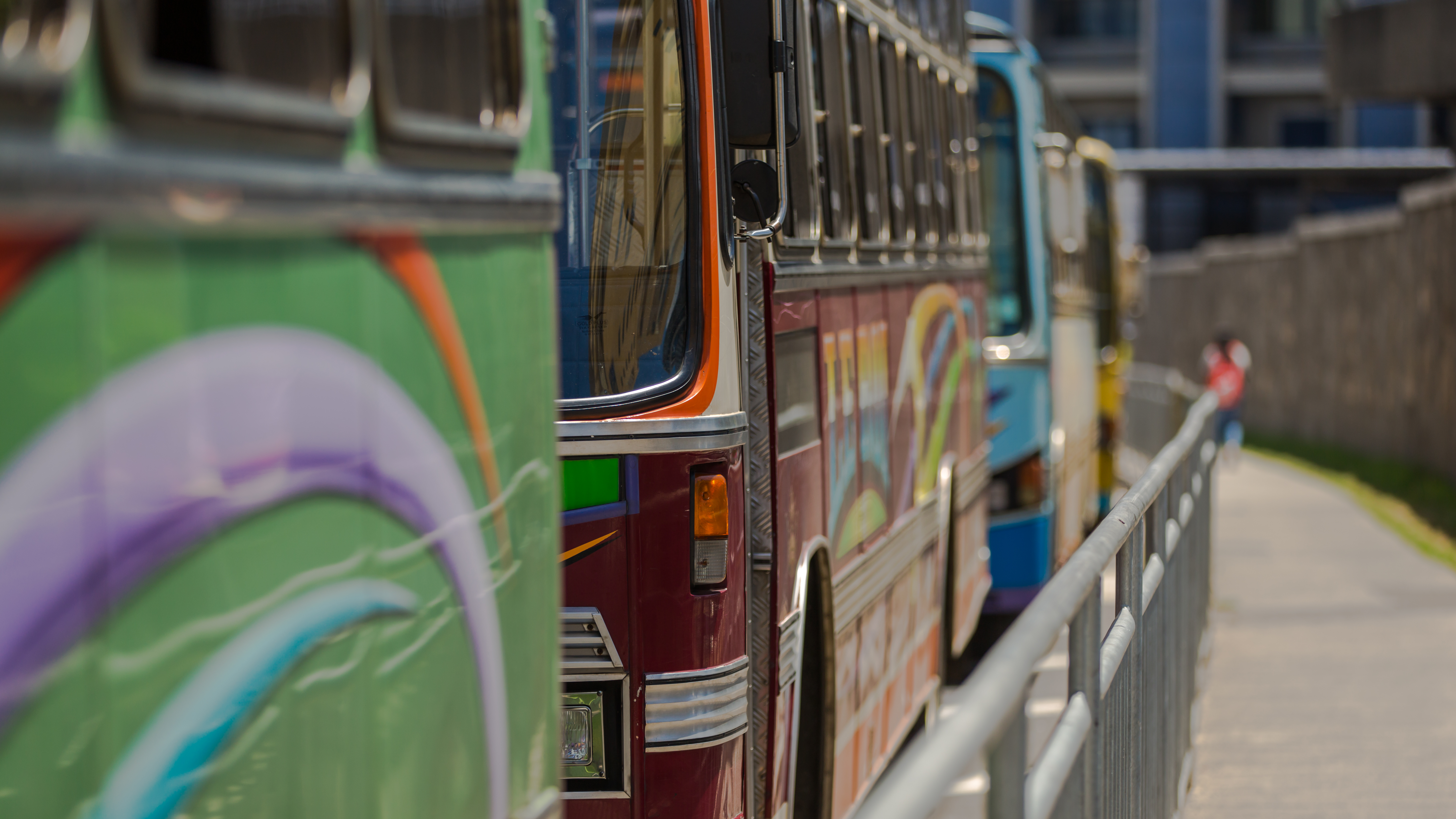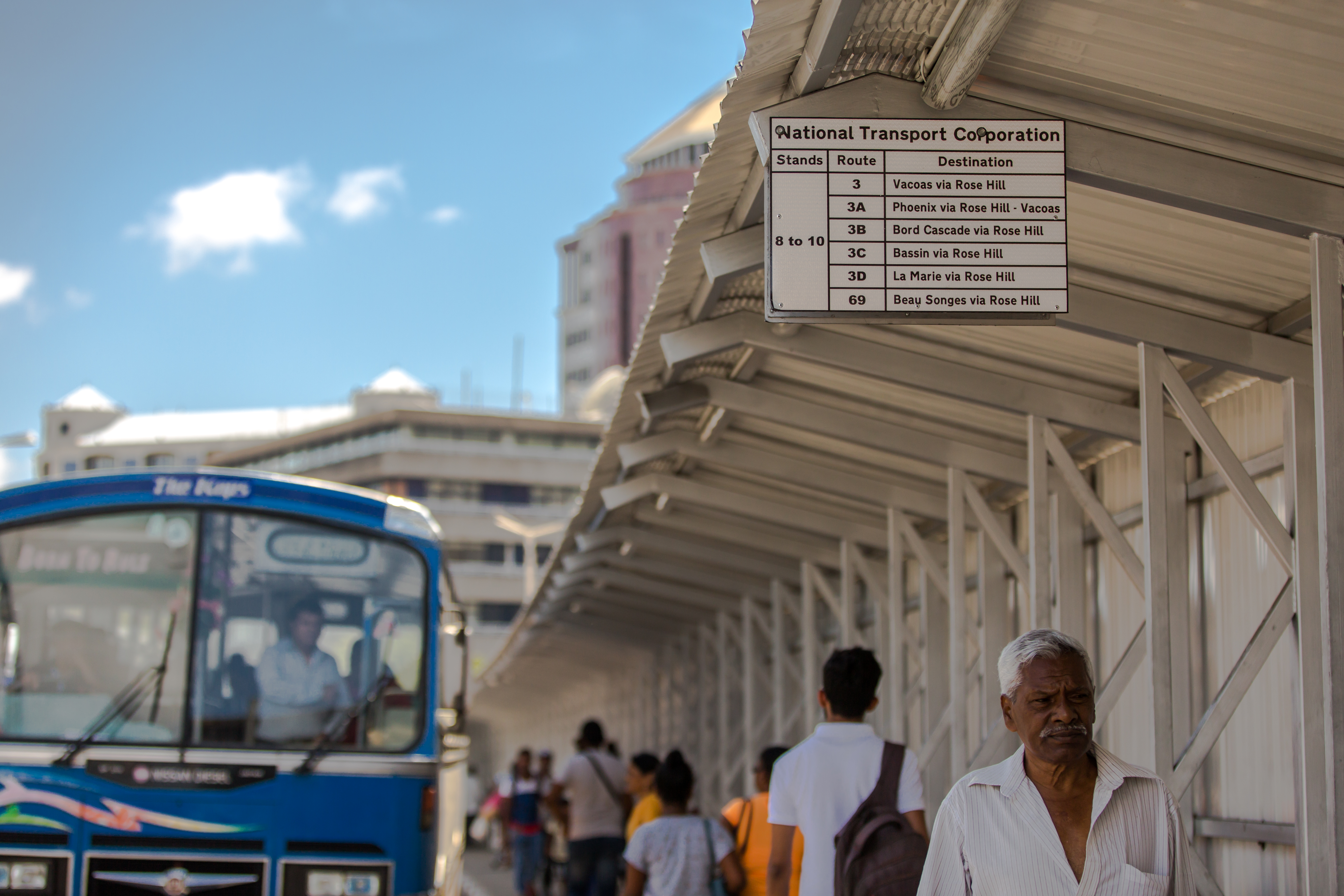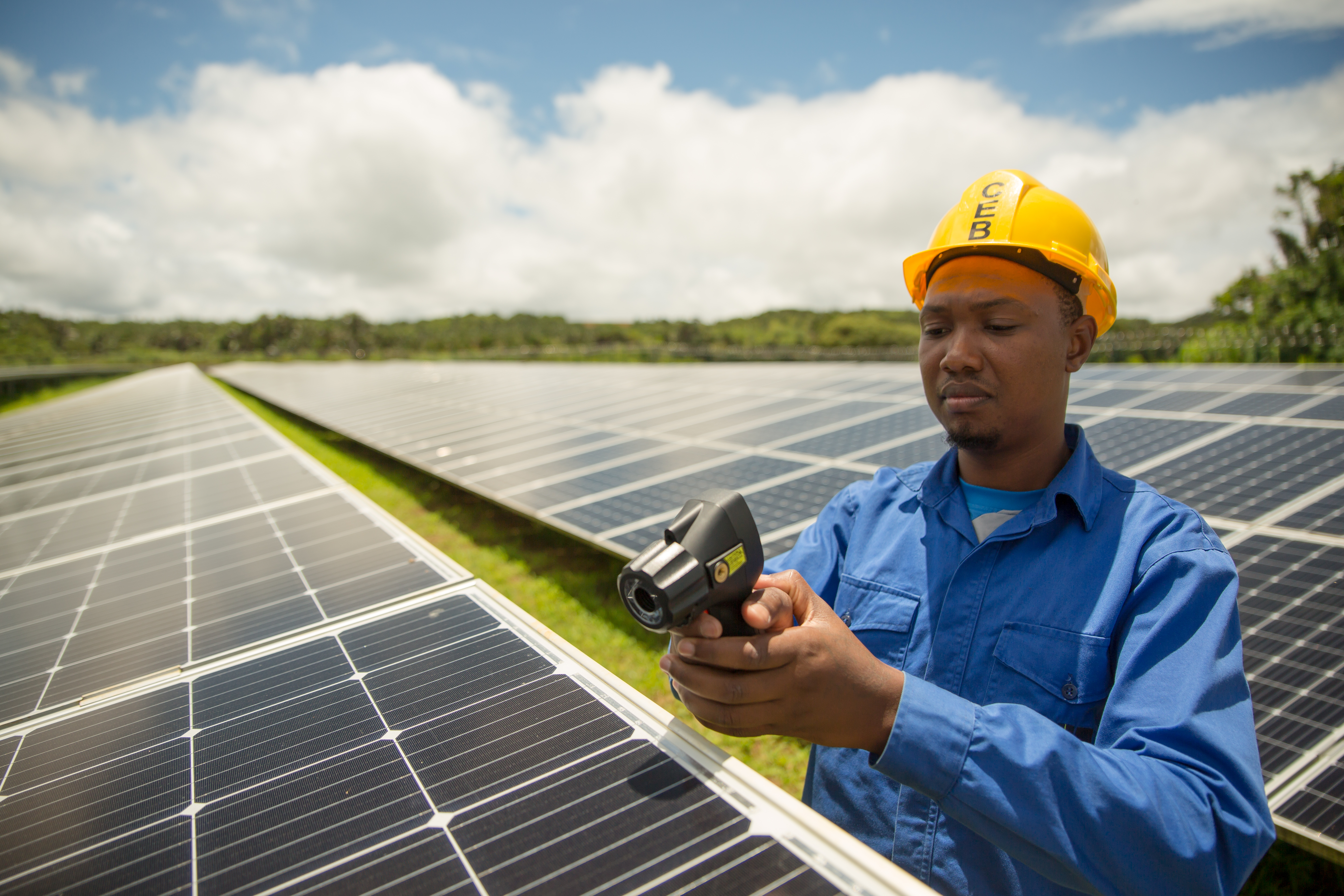By Amanda Serumaga, Resident Representative, UNDP Mauritius and Seychelles; with contribution from Shakil Beedassy, Green Climate Fund Project Coordinator
Blog: A small island makes a big strategic bet
February 26, 2020
The transition to a low carbon transportation will help enhance the country's energy security, while also reducing carbon emissions. Photo: UNDP Mauritius / Stephane Bellerose
In December 2019, crowds stood in long lines wrapped around the municipal building in Port Louis, Mauritius, waiting for the chance for a free ticket on the Metro Express Light Rail.
This was no ordinary train ride.
The new light rail is part of Mauritius’ strategic bet to develop a sustainable transport infrastructure (The GEF, PDF) that will help reduce green house gas (GHG) emissions and traffic congestion; as well as mitigate the impact of climate change.
Once finished, the light rail will cover 19 stops, serving the busiest routes in high population density areas in Mauritius. A new fleet of 30 e-buses, powered in part by renewable energy, will ensure last mile connectivity to residential neighbourhoods.
The modernisation of the sector also includes developing smart digital applications to help commuters plan their journeys.
A switch to clean mobility
Mauritius is heavily reliant on fossil fuels to power its economy. The result is that its GHG emissions increase by 3% each year, with the energy and transport sectors accounting for 86% of these emissions.
According to government estimates, over 60% of the population use buses at least once a week, and more than 3,000 buses carry up to 700,000 people every day, traveling over 140 million km each year.
By using a combination of solar and grid electricity power charging, each e-bus could help reduce at least 36.5 tons of CO2 emissions per year (UNEP), with a total of about 10,950 tons CO2 by 2030.
So, switching to a low carbon transportation offers a significant pathway to improving the country's energy security, while also reducing GHG emissions as per Mauritius’ commitments under the Paris Agreement.
According to government estimates, more than 3,000 buses carry up to 700,000 people every day, traveling over 140 million km each year. Photo: UNDP Mauritius / Stephane Bellerose
Counting the cost
To meet its energy needs, Mauritius needs to import fossil fuels at unsustainable rates (86%). This comes at a high economic and environmental cost for Mauritius, which, as most small island developing states, causes the least environmental damage and yet experiences the worst of its’ effects.
The total investment in the Mauritius island MetroExpress project is estimated at USD 548M. This includes Mauritius’ own investment and support from the governments of India and China, and the GEF-supported UNDP project (PDF).
UNDP will support the design of a capital subsidy scheme of up to 40% for private sector investment in 30 electric buses for both regular long routes and/or short loop feeder buses for last mile connectivity to the MetroExpress; and, a partial subsidy for solar charging stations.
And for those who rode the light rail for free? The current cost of a ride on the MetroExpress is 30 Mauritian rupees or less than $1 for regular travellers; while children and the elderly ride for free, which is the same as bus fares for the equivalent route. E-bus transport will likely be equally low cost.
The costs of a ride on the light rail or an e-bus are aligned with bus fares for the equivalent route. Photo: UNDP Mauritius / Stephane Bellerose
People (and details) always matter
Climate change mitigation through low carbon transport is a commendable ambition for Mauritius to achieve multiple Sustainable Development Goals by 2030.
Success will, however, depend on people and their interests. For a start, the MetroExpress requires land expropriation to build the future line, for which there must be appropriate compensation. The chosen route is the busiest and most profitable one to the capital city, raising concerns about prospective job losses in the transport sector as the light rail system expands. Meanwhile, subsidies and other incentives to be offered for the private sector to invest in electric buses will require deep government coffers.
All this to say that climate change mitigation through low carbon transport comes at a high but worthy cost. Beyond scientific rigour, a people centred strategy will be needed to achieve clean air and green energy for the wellbeing of the islands 1.2 million people. UNDP in Mauritius is proud to be part of the discussion. #ForPeopleForPlanet
By using a combination of solar and grid electricity power charging, each e-bus could help reduce at least 36.5 tons of CO2 emissions per year. Photo: UNDP Mauritius / Stephane Bellerose

 Locations
Locations



